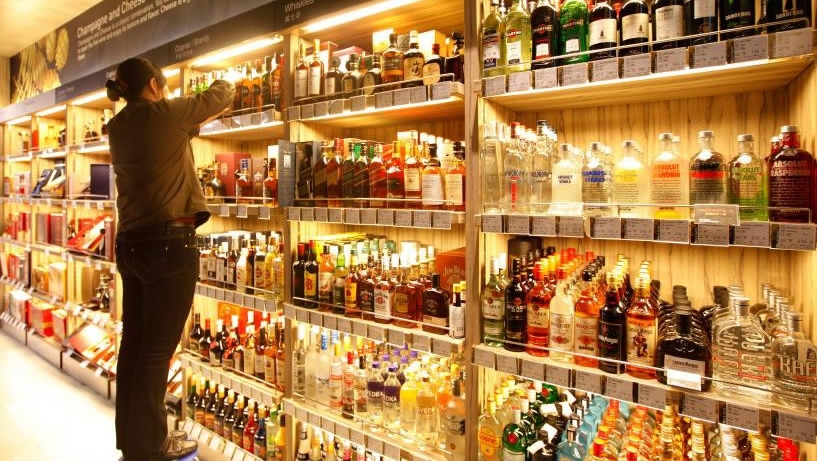
Business
17:15, 24-Nov-2017
China slashes tarrifs on consumer items, from roller pens to roller blades
CGTN's April Ma

China has significantly pared down tax levels on a long list of imported products ranging from food and drugs to stationary, luring the eager tourist to empty their deep pockets at home instead of making a dash for the duty free shop or department store overseas.
Adhering to pledges to further open up China’s market and encourage imports, the Ministry of Finance announced today that tariffs on nearly 200 kinds of foods, beverages, cosmetics, apparel, home appliances and other final goods would be reduced, with import duties on the majority of items shaved down by 50 percent or more.
Taking effect on the first of December, the move will knock down the prices of many consumer favorites flying off shelves overseas, perhaps noticeably so in the case of imported infant formula, whose current 20 percent tax will be completely lifted says the official list.
China’s infants consume around 200 thousand metric tons of imported formula each year, according to figures from customs authorities – not including the abundance purchased through overseas shopping agents, a thirst driven by scandals over tainted products and baby milk powder in the past decade.

Staff arranges items at the imported spirits section in a supermarket, these shelves are expanding as China's middle class develops greater thirst for such goods./ Reuters photo,
Staff arranges items at the imported spirits section in a supermarket, these shelves are expanding as China's middle class develops greater thirst for such goods./ Reuters photo,
Items included in the latest batch of tax cuts comprise in part consumer goods that have in more recent years been incorporated into the shopping list of China’s expanding middle class. For example personal care products such as deodorant, floss, bath salts, aroma oils, as well as other goods that were rarely found in Chinese households more than a decade ago, but have now become quite common, including vacuums, French press coffee pots, skis, smart toilets, toaster ovens, cheese, Brazil nuts, avocados and spirits.
Import duties on toiletries and cosmetics – one of the largest categories of consumer goods that shoppers claw for while shopping overseas – has been cut in half to about five percent on average. Tariffs on over two dozen types of drugs have been slashed by about 30 percent, and taxes on imported clothing and shoes down to around a third of their previous rate.
The tariff lift on the 187 categories of goods does not come completely unexpected. Tariffs on consumer products would be slashed to boost imports and adjust the nation’s import make up, stated China’s Vice Minister of Commerce Wang Bingnan at the beginning of the month. Together with increased support for import loans and financial measures, tariff cuts will be part of a policy drive to spur imports, said vice minister Wang.
This is the third time China has reduced tariff levels in three years, on nearly 500 types of goods. In June, 2015 duties on shoes, apparel, diapers and cosmetics were marked down, followed by an easing of duties on bags, suitcases and fur luxury items as well as thermoses – a popular article sought by Chinese travelling in Japan – in early 2016.

SITEMAP
Copyright © 2018 CGTN. Beijing ICP prepared NO.16065310-3
Copyright © 2018 CGTN. Beijing ICP prepared NO.16065310-3